Throughout its postwar history, Germany somehow managed to resist the temptations of right-wing populism. Not any longer. On March 13, the “Alternative for Germany” (AfD)—a party that has said it may be necessary to shoot at migrants trying to enter the country illegally and that has mooted the idea of banning mosques—scored double-digit results in elections in three German states; in one, Saxony-Anhalt, the party took almost a quarter of the vote. For some observers, the success of the AfD is just evidence of Germany’s further “normalization”: other major countries, such as France, have long had parties that oppose European integration and condemn the existing political establishment for failing properly to represent the people—why should Germany be an exception?
Such complacency is unjustified, for at least two reasons: the AfD has fed off and in turn encouraged a radical street movement, the “Patriotic Europeans Against the Islamization of the West,” or Pegida, that has no equivalent elsewhere in Europe. And perhaps most important, the AfD’s warnings about the “slow cultural extinction” of Germany that supposedly will result from Chancellor Angela Merkel’s welcoming of more than a million refugees have been echoed by a number of prominent intellectuals. In fact, the conceptual underpinnings for what one AfD ideologue has called “avant-garde conservatism” can be found in the recent work of several mainstream German writers and philosophers. Never since the end of the Nazi era has a right-wing party enjoyed such broad cultural support. How did this happen?

The AfD was founded in 2013 by a group of perfectly respectable, deeply uncharismatic economics professors. Its very name, Alternative for Germany, was chosen to contest Angela Merkel’s claim that there was no alternative to her policies to address the eurocrisis.The professors opposed the euro, since, in their eyes, it placed excessive financial burdens on the German taxpayer and sowed discord among European states. But they did not demand the dissolution of the European Union itself in the way right-wing populists elsewhere in Europe have done. Still, Germany’s mainstream parties sought to tar them as “anti-European,” which reinforced among many voters the sense that the country’s political establishment made discussion of certain policy choices effectively taboo. Like other new parties, the AfD attracted all kinds of political adventurers. But it also provided a home for conservatives who thought that many of Merkel’s policies—ending nuclear energy and the military draft, endorsing same-sex unions, and raising the minimum wage—had moved her Christian Democratic Union (CDU) too far to the left. Since there was a mainstream conservative view opposing many of these decisions, the AfD could now occupy space to the right of the CDU without suspicion of being undemocratic or of harking back to the Nazi past.
The AfD narrowly failed to enter the German parliament in 2013, but managed to send seven deputies to Brussels after the 2014 elections to the European Parliament, where they joined an alliance of Euroskeptic parties led by Britain’s conservatives. With outward success came internal strife. Young right-wingers challenged the AfD’s professors with initiatives such as the “Patriotic Platform,” which appeared closer to the nationalist far right than an authentically conservative CDU. In summer 2015, most of the founders of the AfD walked away; one expressed his regret about having created a “monster.” The AfD seemed destined to follow the path of so many protest parties, brought down by infighting, a lack of professionalism, and the failure to nurture enough qualified personnel to do the day-to-day parliamentary politics it would have to engage in to become more than a flash in the pan.
And then the party was saved by Angela Merkel. Or so the AfD’s new, far more radical leaders have been saying ever since the chancellor announced her hugely controversial refugee policy last summer. At the time, her decision was widely endorsed, but in the months since, her support has declined precipitously—while the AfD’s has surged. Many fear that the German state is losing control of the situation, and blame Merkel for failing to negotiate a genuinely pan-European approach to the crisis. Alexander Gauland, a senior former CDU politician and now one of the most recognizable AfD leaders—he cultivates the appearance of a traditional British Tory, including tweed jackets and frequent references to Edmund Burke—has called the refugee crisis a “gift” for the AfD.

Others have gone further. Consider the statements of Beatrix von Storch, a countess from Lower Saxony who is one of the AfD’s deputies to the European Parliament, where she just joined the group that includes UKIP and the far right Sweden Democrats. A promoter of both free-market ideas and Christian fundamentalism she has gone on record as saying that border guards might have to use firearms against refugees trying illegally to cross the border—including women and children. After much criticism, she conceded that children might be exempted, but not women.
Such statements are meant to exploit what the AfD sees as a broadening fear among voters that the new arrivals pose a deep threat to German culture. The AfD will present a full-fledged political program after a conference at the very end of April, but early indications are that there will be a heavy emphasis on preventing what the party views as the Islamization of Germany. A draft version of the program contains phrases such as “We are and want to remain Germans”—and the real meaning of such platitudes is then made concrete with the call to prohibit the construction of minarets. It is here that the orientation of AfD and the far more strident, anti-Islam Pegida movement most clearly overlap.

Pegida was started by right-wing activists in the fall of 2014 who invited citizens to join them for what they called “evening strolls” through Dresden and other cities to oppose “Islamization.” The movement’s leaders have also advocated better relations with Russia (posters have said “Putin help us!”), a call strongly echoed by AfD politicians such as Gauland. The demonstrators appropriated the slogan “We are the people,” which East German citizens had famously chanted in 1989 to protest against the state socialist regime. Pegida not only lives off diffuse fears (there are hardly any Muslims in Dresden), but also questions the democratic system as such. Elected representatives in parliament—Volksvertreter—are denounced as traitors—Volksverräter. Pegida members have decried Merkel’s policies of maintaining open borders as violating her oath of office to keep the German people safe.
Supporters of the movement have demanded “resistance,” or at least “civil disobedience,” for instance by blocking access to refugee centers. Demonstrators sometimes hold up the “Wirmer flag,” which the anti-Hitler resistance around Claus von Stauffenberg had intended as the symbol of a post-Nazi Germany. In fact, many far-right groups in Germany have appropriated this symbol to signal that they consider the current state illegitimate (even though Josef Wirmer, the designer of the flag, was a Catholic democrat who was executed by the Nazis; his son has said the Wirmer family might sue Pegida demonstrators for using the banner). Pegida events have been attended by right-wing leaders from outside Germany, most prominently the Dutch right-wing anti-Islam politician Geert Wilders (who calls the Tweede Kammer, the Dutch House of Representatives in The Hague, a “fake parliament”).
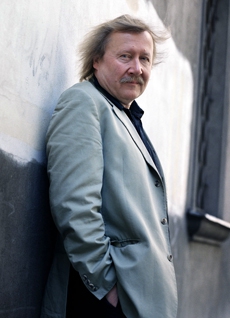 Here is where German intellectuals come into the story. Journalists and academics have had a hard time understanding why the Pegida movement emerged when it did and why it has attracted so many people in Germany; there are branches of the Pegida movement in other parts of Europe, but they have gathered only marginal support thus far. Those who suggest it is driven by “anger” and “resentment” are being descriptive at best. What is remarkable, though, is that “rage” as a political stance has received the philosophical blessing of the leading AfD intellectual, Marc Jongen, who is a former assistant of the well-known philosopher Peter Sloterdijk. Jongen has not only warned about the danger of Germany’s “cultural self-annihilation”; he has also argued that, because of the cold war and the security umbrella provided by the US, Germans have been forgetful about the importance of the military, the police, warrior virtues—and, more generally, what the ancient Greeks called thymos (variously translated as spiritedness, pride, righteous indignation, a sense of what is one’s own, or rage), in contrast to eros and logos, love and reason. Germany, Jongen says, is currently “undersupplied” with thymos. Only the Japanese have even less of it—presumably because they also lived through postwar pacifism. According to Jongen, Japan can afford such a shortage, because its inhabitants are not confronted with the “strong natures” of immigrants. It follows that the angry demonstrators are doing a damn good thing by helping to fire up thymos in German society.
Here is where German intellectuals come into the story. Journalists and academics have had a hard time understanding why the Pegida movement emerged when it did and why it has attracted so many people in Germany; there are branches of the Pegida movement in other parts of Europe, but they have gathered only marginal support thus far. Those who suggest it is driven by “anger” and “resentment” are being descriptive at best. What is remarkable, though, is that “rage” as a political stance has received the philosophical blessing of the leading AfD intellectual, Marc Jongen, who is a former assistant of the well-known philosopher Peter Sloterdijk. Jongen has not only warned about the danger of Germany’s “cultural self-annihilation”; he has also argued that, because of the cold war and the security umbrella provided by the US, Germans have been forgetful about the importance of the military, the police, warrior virtues—and, more generally, what the ancient Greeks called thymos (variously translated as spiritedness, pride, righteous indignation, a sense of what is one’s own, or rage), in contrast to eros and logos, love and reason. Germany, Jongen says, is currently “undersupplied” with thymos. Only the Japanese have even less of it—presumably because they also lived through postwar pacifism. According to Jongen, Japan can afford such a shortage, because its inhabitants are not confronted with the “strong natures” of immigrants. It follows that the angry demonstrators are doing a damn good thing by helping to fire up thymos in German society.
Jongen, who is now deputy leader of the AfD in Baden-Württemberg, was virtually unknown until this spring. Not so Sloterdijk, one of Germany’s most prominent philosophers (and undoubtedly the most prolific) whose work has also become well-known in the US. Sloterdijk regularly takes on controversial subjects such as genetic engineering and delights in provoking what he sees as an intellectual left lacking in humor and esprit. His books, which sell extremely well, are not so much driven by clear-cut arguments as suggestively offering philosophical, and often poetic, re-descriptions of recent history, or even the history of the West as a whole.
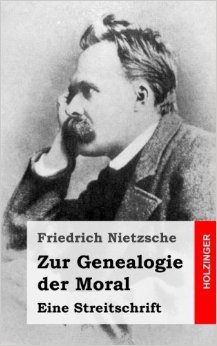 Like in Nietzsche’s On the Genealogy of Morality—a continuous inspiration for Sloterdijk—these re-descriptions are supposed to jolt readers out of conventional understandings of the present. However, not much of his work lives up to Nietzsche’s image of the philosopher as a “doctor of culture” who might end up giving the patient an unpleasant or outright shocking diagnosis: Sloterdijk often simply reads back to the German mainstream what it is already thinking, just sounding much deeper because of the ingenuous metaphors and analogies, cute anachronisms, and cascading neologisms that are typical of his highly mannered style.
Like in Nietzsche’s On the Genealogy of Morality—a continuous inspiration for Sloterdijk—these re-descriptions are supposed to jolt readers out of conventional understandings of the present. However, not much of his work lives up to Nietzsche’s image of the philosopher as a “doctor of culture” who might end up giving the patient an unpleasant or outright shocking diagnosis: Sloterdijk often simply reads back to the German mainstream what it is already thinking, just sounding much deeper because of the ingenuous metaphors and analogies, cute anachronisms, and cascading neologisms that are typical of his highly mannered style.
Sloterdijk has distanced himself from Jongen’s self-declared “avant-garde conservatism.” But the “psycho-political” perspective Jongen adopts is one of Sloterdijk’s philosophical trademarks. In his 2006 volume Rage and Time, in which he also takes his cues from Nietzsche, Sloterdijk argued that in the West thymos had been largely forgotten because of the dominance of eros in consumer capitalism, with the result that envy and resentment dominate the inner lives of citizens. He echoed Francis Fukuyama’s argument in his The End of History and the Last Man that pacified liberal democracies generally fail to find a proper place for “thymotic energies,” and Sloterdijk has said explicitly that, in confrontations with Islam, the West needs to rediscover the role of thymos. Just like Jongen, who criticizes the EU for being “post-thymotic,” Sloterdijk longs for Europe to assert itself more forcefully on the global stage and fears that the refugee crisis will weaken the continent—to the delight, he says, of the US (“that’s why Obama praises Merkel,” as Sloterdijk put it in an interview published at the beginning of 2016).
Sloterdijk has also invoked the concept of “the state of exception” developed by the right-wing jurist Carl Schmitt in the Twenties. As Schmitt saw it, the sovereign could, in order to save the polity in a situation of crisis, suspend the constitution by declaring a state of exception. He added that whoever decides whether there really is an existential threat to a state is revealed as the supreme power. Today, Sloterdijk holds, it is not the state, the nominal sovereign, but the refugee who decides on the state of exception. As a result of Merkel’s policy to allow the unrestricted entry of Syrians, Sloterdijk charges, Germany has waived its own sovereignty, and this “abdication” supposedly “continues day and night.”
No doubt refugees themselves have faced a state of emergency and no doubt their arrival has created an exceptional challenge for Germany—but Sloterdijk’s observation makes at best for a momentarily arresting aphorism, as opposed to providing any real analysis of the situation: Merkel and her parliamentary majority in fact retain decision-making power, and there is no reason to believe that Europe’s most powerful state has become a plaything of dangerous foreigners. But Sloterdijk has charged that his critics are superficial intellectuals who surround his ideas as if the latter were “women at New Year’s Eve”—a tasteless allusion to the attacks on females in Cologne this winter.
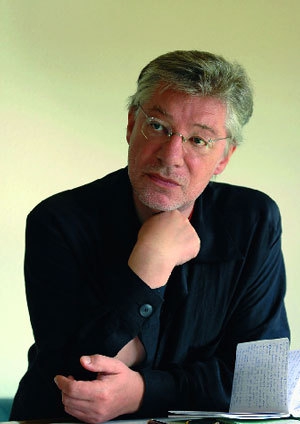 Sloterdijk is not the only prominent cultural figure who willfully reinforces a sense of Germans as helpless victims who are being “overrun” and who might eventually face “extinction.” The writer Botho Strauβ recently published an essay titled “The Last German,” in which he declared that he would rather be part of a dying people than one that for “predominantly economic-demographic reasons is mixed with alien peoples, and thereby rejuvenated.” He feels that the national heritage “from Herder to Musil” has already been lost, and yet hopes that Muslims might teach Germans a lesson about what it means to follow a tradition—because Muslims know how to submit properly to their heritage. In fact, Strauβ, who cultivates the image of a recluse in rural East Germany, goes so far as to speculate that only if the German Volk become a minority in their own country will they be able to rediscover and assert their identity.
Sloterdijk is not the only prominent cultural figure who willfully reinforces a sense of Germans as helpless victims who are being “overrun” and who might eventually face “extinction.” The writer Botho Strauβ recently published an essay titled “The Last German,” in which he declared that he would rather be part of a dying people than one that for “predominantly economic-demographic reasons is mixed with alien peoples, and thereby rejuvenated.” He feels that the national heritage “from Herder to Musil” has already been lost, and yet hopes that Muslims might teach Germans a lesson about what it means to follow a tradition—because Muslims know how to submit properly to their heritage. In fact, Strauβ, who cultivates the image of a recluse in rural East Germany, goes so far as to speculate that only if the German Volk become a minority in their own country will they be able to rediscover and assert their identity.
Such rhetoric indicates a potentially profound shift in German political culture: it is now possible to be an outspoken nationalist without being associated with—or, for that matter, without having to say anything about—the Nazi past. And it is possible to argue that Germany needs to experience a kind of 1968 in reverse: whereas back then, a grand coalition of Social and Christian Democrats meant that there was no real representation of the left in parliament, or so student activists thought, there are now a growing number of established intellectuals who are prepared to argue that there is no effective way to counter Merkel’s refugee policies in the Bundestag—with the consequence that the right needs to engage in “extra-parliamentary opposition.” It is one thing to oppose a government’s particular policies; it is another to claim, as the AfD explicitly does in its draft program, that a self-serving political class consisting of all parties has hijacked the democratic system as a whole: an “illegitimate situation,” the party says, which the Volk needs to correct.
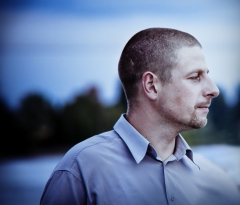 Like at least some radicals in the late Sixties, the new right-wing “avant-garde” finds the present moment not just one of apocalyptic danger, but also of exhilaration. There is for instance Götz Kubitschek, a publisher specializing in conservative nationalist or even outright reactionary authors, such as Jean Raspail and Renaud Camus, who keep warning of an “invasion” or a “great population replacement” in Europe. Kubitschek tells Pegida demonstrators that it is a pleasure (lust) to be angry. He is also known for organizing conferences at his manor in Saxony-Anhalt, including for the “Patriotic Platform.” His application to join the AfD was rejected during the party’s earlier, more moderate phase, but he has hosted the chairman of the AfD, Björn Höcke, in Thuringia. Höcke, a secondary school teacher by training, offered a lecture last fall about the differences in “reproduction strategies” of “the life-affirming, expansionary African type” and the place-holding European type. Invoking half-understood bits and pieces from the ecological theories of E. O. Wilson, Höcke used such seemingly scientific evidence to chastise Germans for their “decadence.”
Like at least some radicals in the late Sixties, the new right-wing “avant-garde” finds the present moment not just one of apocalyptic danger, but also of exhilaration. There is for instance Götz Kubitschek, a publisher specializing in conservative nationalist or even outright reactionary authors, such as Jean Raspail and Renaud Camus, who keep warning of an “invasion” or a “great population replacement” in Europe. Kubitschek tells Pegida demonstrators that it is a pleasure (lust) to be angry. He is also known for organizing conferences at his manor in Saxony-Anhalt, including for the “Patriotic Platform.” His application to join the AfD was rejected during the party’s earlier, more moderate phase, but he has hosted the chairman of the AfD, Björn Höcke, in Thuringia. Höcke, a secondary school teacher by training, offered a lecture last fall about the differences in “reproduction strategies” of “the life-affirming, expansionary African type” and the place-holding European type. Invoking half-understood bits and pieces from the ecological theories of E. O. Wilson, Höcke used such seemingly scientific evidence to chastise Germans for their “decadence.”
These ideas have been met with significant resistance. Some intellectuals have criticized Sloterdijk for being an armchair philosopher who offers Volk-psychology with little awareness of the reality of refugees’ lives or, for that matter, of the complex political imperatives Merkel is trying to juggle. (Sloterdijk in turn has said that he is simply on the side of populism, which he understands as the “realpolitik of the less and less silent majority.”) The social theorist Armin Nassehi has shrewdly pointed out that the seemingly avant-garde conservatives offer not much more than the sociologically naive view that more national homogeneity will solve all problems; and the novelist and essayist Navid Kermani, who with his much-praised reporting from the “Balkans route,” has reminded Germans of the actual plight of refugees. Nassehi and Kermani are among the most thoughtful intellectual voices in Germany today. Both also happen to be second-generation immigrants whose parents came to Germany from Iran in the 1950s.
The AfD might yet fail to establish itself in the political system. Infighting continues, not least because there are deep disagreements about whether the party should enter coalition governments or remain in “fundamental opposition.” It’s not clear that the AfD can successfully evoke the heroism of resistance and be a home for moderate Bürger all at the same time. As the number of refugees reaching Germany has dwindled with the effective closing of the “Balkans route,” the pressure on Merkel is easing. But neither conservatives nor nationalists are likely to forgive her for her stance during the refugee crisis. Three-quarters of Germans now expect the AfD to enter parliament in the national elections in 2017. And even if the party doesn’t reach the required threshold, it, and its intellectual supporters, will have brought about the most dramatic change in mainstream German political discourse since the country’s unification in 1990.







 del.icio.us
del.icio.us
 Digg
Digg
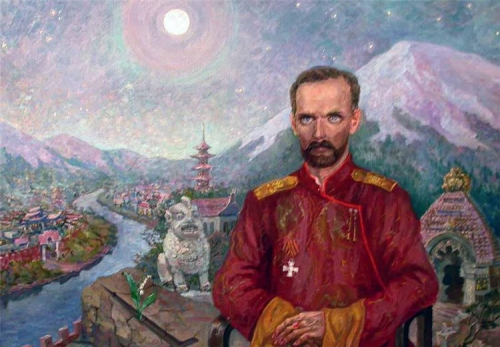
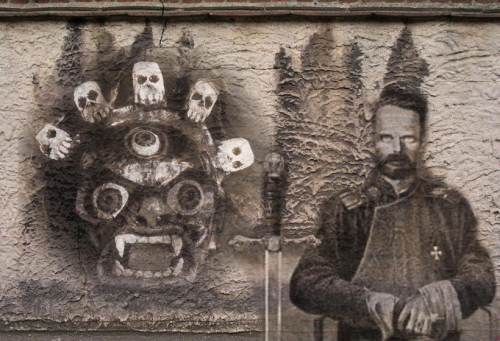







 Here is where German intellectuals come into the story. Journalists and academics have had a hard time understanding why the Pegida movement emerged when it did and why it has attracted so many people in Germany; there are branches of the Pegida movement in other parts of Europe, but they have gathered only marginal support thus far. Those who suggest it is driven by “anger” and “resentment” are being descriptive at best. What is remarkable, though, is that “rage” as a political stance has received the philosophical blessing of the leading AfD intellectual, Marc Jongen, who is a former assistant of the well-known philosopher Peter Sloterdijk. Jongen has not only warned about the danger of Germany’s “cultural self-annihilation”; he has also argued that, because of the cold war and the security umbrella provided by the US, Germans have been forgetful about the importance of the military, the police, warrior virtues—and, more generally, what the ancient Greeks called thymos (variously translated as spiritedness, pride, righteous indignation, a sense of what is one’s own, or rage), in contrast to eros and logos, love and reason. Germany, Jongen says, is currently “undersupplied” with thymos. Only the Japanese have even less of it—presumably because they also lived through postwar pacifism. According to Jongen, Japan can afford such a shortage, because its inhabitants are not confronted with the “strong natures” of immigrants. It follows that the angry demonstrators are doing a damn good thing by helping to fire up thymos in German society.
Here is where German intellectuals come into the story. Journalists and academics have had a hard time understanding why the Pegida movement emerged when it did and why it has attracted so many people in Germany; there are branches of the Pegida movement in other parts of Europe, but they have gathered only marginal support thus far. Those who suggest it is driven by “anger” and “resentment” are being descriptive at best. What is remarkable, though, is that “rage” as a political stance has received the philosophical blessing of the leading AfD intellectual, Marc Jongen, who is a former assistant of the well-known philosopher Peter Sloterdijk. Jongen has not only warned about the danger of Germany’s “cultural self-annihilation”; he has also argued that, because of the cold war and the security umbrella provided by the US, Germans have been forgetful about the importance of the military, the police, warrior virtues—and, more generally, what the ancient Greeks called thymos (variously translated as spiritedness, pride, righteous indignation, a sense of what is one’s own, or rage), in contrast to eros and logos, love and reason. Germany, Jongen says, is currently “undersupplied” with thymos. Only the Japanese have even less of it—presumably because they also lived through postwar pacifism. According to Jongen, Japan can afford such a shortage, because its inhabitants are not confronted with the “strong natures” of immigrants. It follows that the angry demonstrators are doing a damn good thing by helping to fire up thymos in German society. Like in Nietzsche’s On the Genealogy of Morality—a continuous inspiration for Sloterdijk—these re-descriptions are supposed to jolt readers out of conventional understandings of the present. However, not much of his work lives up to Nietzsche’s image of the philosopher as a “doctor of culture” who might end up giving the patient an unpleasant or outright shocking diagnosis: Sloterdijk often simply reads back to the German mainstream what it is already thinking, just sounding much deeper because of the ingenuous metaphors and analogies, cute anachronisms, and cascading neologisms that are typical of his highly mannered style.
Like in Nietzsche’s On the Genealogy of Morality—a continuous inspiration for Sloterdijk—these re-descriptions are supposed to jolt readers out of conventional understandings of the present. However, not much of his work lives up to Nietzsche’s image of the philosopher as a “doctor of culture” who might end up giving the patient an unpleasant or outright shocking diagnosis: Sloterdijk often simply reads back to the German mainstream what it is already thinking, just sounding much deeper because of the ingenuous metaphors and analogies, cute anachronisms, and cascading neologisms that are typical of his highly mannered style.  Sloterdijk is not the only prominent cultural figure who willfully reinforces a sense of Germans as helpless victims who are being “overrun” and who might eventually face “extinction.” The writer Botho Strauβ recently published an essay titled “The Last German,” in which he declared that he would rather be part of a dying people than one that for “predominantly economic-demographic reasons is mixed with alien peoples, and thereby rejuvenated.” He feels that the national heritage “from Herder to Musil” has already been lost, and yet hopes that Muslims might teach Germans a lesson about what it means to follow a tradition—because Muslims know how to submit properly to their heritage. In fact, Strauβ, who cultivates the image of a recluse in rural East Germany, goes so far as to speculate that only if the German Volk become a minority in their own country will they be able to rediscover and assert their identity.
Sloterdijk is not the only prominent cultural figure who willfully reinforces a sense of Germans as helpless victims who are being “overrun” and who might eventually face “extinction.” The writer Botho Strauβ recently published an essay titled “The Last German,” in which he declared that he would rather be part of a dying people than one that for “predominantly economic-demographic reasons is mixed with alien peoples, and thereby rejuvenated.” He feels that the national heritage “from Herder to Musil” has already been lost, and yet hopes that Muslims might teach Germans a lesson about what it means to follow a tradition—because Muslims know how to submit properly to their heritage. In fact, Strauβ, who cultivates the image of a recluse in rural East Germany, goes so far as to speculate that only if the German Volk become a minority in their own country will they be able to rediscover and assert their identity.  Like at least some radicals in the late Sixties, the new right-wing “avant-garde” finds the present moment not just one of apocalyptic danger, but also of exhilaration. There is for instance Götz Kubitschek, a publisher specializing in conservative nationalist or even outright reactionary authors, such as Jean Raspail and Renaud Camus, who keep warning of an “invasion” or a “great population replacement” in Europe. Kubitschek tells Pegida demonstrators that it is a pleasure (lust) to be angry. He is also known for organizing conferences at his manor in Saxony-Anhalt, including for the “Patriotic Platform.” His application to join the AfD was rejected during the party’s earlier, more moderate phase, but he has hosted the chairman of the AfD, Björn Höcke, in Thuringia. Höcke, a secondary school teacher by training, offered a lecture last fall about the differences in “reproduction strategies” of “the life-affirming, expansionary African type” and the place-holding European type. Invoking half-understood bits and pieces from the ecological theories of E. O. Wilson, Höcke used such seemingly scientific evidence to chastise Germans for their “decadence.”
Like at least some radicals in the late Sixties, the new right-wing “avant-garde” finds the present moment not just one of apocalyptic danger, but also of exhilaration. There is for instance Götz Kubitschek, a publisher specializing in conservative nationalist or even outright reactionary authors, such as Jean Raspail and Renaud Camus, who keep warning of an “invasion” or a “great population replacement” in Europe. Kubitschek tells Pegida demonstrators that it is a pleasure (lust) to be angry. He is also known for organizing conferences at his manor in Saxony-Anhalt, including for the “Patriotic Platform.” His application to join the AfD was rejected during the party’s earlier, more moderate phase, but he has hosted the chairman of the AfD, Björn Höcke, in Thuringia. Höcke, a secondary school teacher by training, offered a lecture last fall about the differences in “reproduction strategies” of “the life-affirming, expansionary African type” and the place-holding European type. Invoking half-understood bits and pieces from the ecological theories of E. O. Wilson, Höcke used such seemingly scientific evidence to chastise Germans for their “decadence.” 
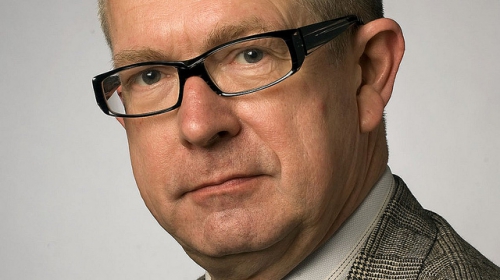
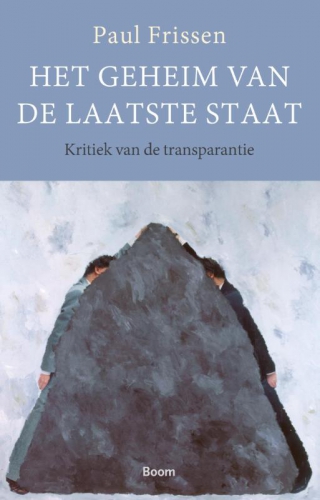 Heel wat politici, filosofen en gewone burgers eisen van de overheid meer transparantie in het politiek bedrijf. Het lijkt wel het tovermiddel om onze democratie sterker en efficiënter te maken. En de politiek speelt daar ook op in. Nieuwe parlementsgebouwen worden gebouwd met grote glaspartijen als figuurlijk, maar ook letterlijk symbool van de gezamenlijke wil om te komen tot transparantie. Burgers krijgen zo bijna letterlijk inzage in de parlementaire werking en de verkozenen van het volk zien als het ware hoe de burgers op hen toekijken. Dus geen beslissingen meer in duistere achterkamertjes maar openbare debatten die dan via televisie en het internet gevolgd kunnen worden door al wie interesse heeft. Transparantie wordt ook geëist van zowat alle burgers om aan te tonen dat ze ‘niets te verbergen hebben’ en daarom figuurlijk doorzichtig moeten zijn. Leve de transparantie dus. Maar tegen die trend in schreef de Nederlandse hoogleraar Bestuurskunde Paul Frissen het boek Het geheim van de laatste staat waarin hij kritiek geeft op de transparantie en pleit voor het fundamentele recht van de burger op geheimen als één van de waarborgen van zijn vrijheid.
Heel wat politici, filosofen en gewone burgers eisen van de overheid meer transparantie in het politiek bedrijf. Het lijkt wel het tovermiddel om onze democratie sterker en efficiënter te maken. En de politiek speelt daar ook op in. Nieuwe parlementsgebouwen worden gebouwd met grote glaspartijen als figuurlijk, maar ook letterlijk symbool van de gezamenlijke wil om te komen tot transparantie. Burgers krijgen zo bijna letterlijk inzage in de parlementaire werking en de verkozenen van het volk zien als het ware hoe de burgers op hen toekijken. Dus geen beslissingen meer in duistere achterkamertjes maar openbare debatten die dan via televisie en het internet gevolgd kunnen worden door al wie interesse heeft. Transparantie wordt ook geëist van zowat alle burgers om aan te tonen dat ze ‘niets te verbergen hebben’ en daarom figuurlijk doorzichtig moeten zijn. Leve de transparantie dus. Maar tegen die trend in schreef de Nederlandse hoogleraar Bestuurskunde Paul Frissen het boek Het geheim van de laatste staat waarin hij kritiek geeft op de transparantie en pleit voor het fundamentele recht van de burger op geheimen als één van de waarborgen van zijn vrijheid.